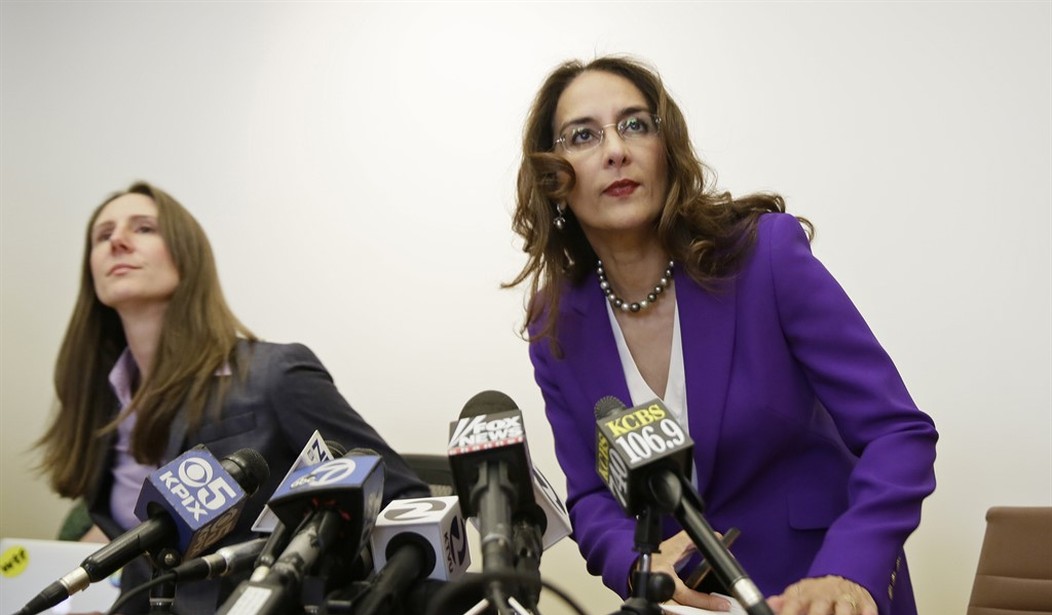
By Joe Cunningham. Media: Redstate
There are few things more sacred to people of faith than their ability to worship and confess, per their beliefs. But in Washington State, that right is now under direct assault.
A new law, Senate Bill 5375, signed by Democrat Governor Bob Ferguson, crosses a constitutional line that should alarm every American, regardless of political persuasion. The law requires clergy to report suspected child abuse or neglect, even when that knowledge comes from a religious confession.
The language is narrow and targeted. It makes clear that, unlike in most other states, there is no exemption for what is known as the “seal of the confessional”—a practice especially central to the Catholic faith, where a priest is bound by oath not to reveal what is said in confession, even under legal threat.
The bill’s author makes it clear that she has no regard for religious conviction, calling it little more than “conscience.”
It took Sen. Noel Frame, D-Seattle, three years to get the bill to the governor’s desk. Making sure disclosures during confidential conversations between a penitent and religious leader were not exempt was critical, she said.
“You never put somebody’s conscience above the protection of a child,” she said.
However, the Department of Justice has taken notice.
On Monday, the Justice Department announced it is opening a formal investigation into Washington’s new law, citing serious concerns that it violates the Free Exercise Clause of the First Amendment. According to the DOJ press release, the Civil Rights Division, under Assistant Attorney General Harmeet Dhillon, is going after the state.
“[T]he law appears to single out clergy as not entitled to assert applicable privileges, as compared to other reporting professionals,” Dhillon said in a statement. “We take this matter very seriously and look forward to Washington State’s cooperation with our investigation.”
And I agree: The government cannot compel people to violate their deeply held religious beliefs. That’s not just my opinion—that’s the First Amendment.
Even if you’re not Catholic, and even if you’re not particularly religious, the precedent this sets should worry you. If the government can decide that a core religious practice is suddenly illegal because they don’t like how it operates, what’s next?
A Targeted Attack Masquerading as Justice
Let’s be honest: this law isn’t about protecting kids. If it were, the legislature could have worked with churches and clergy to build reporting policies that respect both faith and safety. Instead, they’ve chosen the most confrontational and unconstitutional route possible—forcing clergy to choose between obeying God or obeying the state.
What Washington has done here isn’t about preventing abuse. It’s about sending a message that religious institutions—especially the Catholic Church—will be punished if they don’t bend to the state’s will.
To be clear, no one is saying the Catholic Church has a perfect record. It doesn’t. But the path to reform within the Church must come from the Church and from its faithful, not from government edicts that rewrite the rules of religious doctrine.
This law isn’t about Catholicism, per se. It’s about the fundamental principle that the government doesn’t get to pick and choose which religious practices are acceptable. Today it’s the confessional. Tomorrow, it could be worship services, hiring practices, or religious speech.
Why the First Amendment Comes First
This trend is something conservatives have seen building for years now: the idea that “civil rights” or “social justice” require the dismantling of long-standing constitutional protections. The far left has weaponized these terms, turning them into blunt instruments to use against their political and religious opponents.
We’ve seen this in cases involving Christian bakers, Catholic adoption agencies, and now, clergy confessions. These aren’t isolated incidents—they’re part of a larger cultural push to subordinate faith to the demands of the state.
The Founders understood that if the government could control religion, it could control everything. That’s why the First Amendment doesn’t just protect free speech—it protects the free exercise of religion. And not just religion in the abstract, but the actual, day-to-day practice of faith, including confession, worship, and conscience.
No matter how well-intentioned a law may be, if it violates the First Amendment, it cannot stand. And when that law forces someone to choose between their job and their God, it’s not only unconstitutional—it’s morally indefensible.
The Church Must Lead, Not Be Forced
I believe the Catholic Church, and all faith traditions, must do everything they can to root out abuse and protect the vulnerable. Clergy, bishops, and religious leaders should be leading the charge for justice within their own communities. But that effort must come from within.
When the state takes it upon itself to tell a religion how to operate its sacraments, we no longer live in a free country.
If the Catholic Church wants to re-evaluate how confession is handled in light of serious abuse allegations, that is a conversation to be had inside the Church. It is not a conversation to be forced by a government that has shown it neither respects nor understands the faith it is attempting to regulate.
But, this is not just a Catholic issue. This is a constitutional issue. If we let Washington State get away with this, other blue states will follow. And then the federal government won’t be far behind.
The DOJ’s investigation is a good first step, but it’s up to the rest of us—Catholic, Protestant, Jew, Muslim, or none of the above—to speak up.
The First Amendment is not a suggestion. It’s a promise. And it’s time we remind our leaders what that promise means.




























































































Discussion about this post